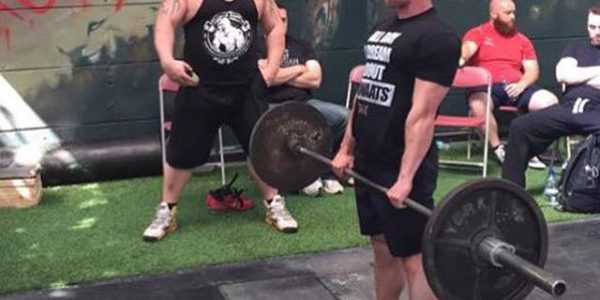I think this goes for both the coach & the client.
Let’s say I’m coaching a client online or person I watch them squat, I see a few things we can work on so we get to working on these over the next few months with cues/technical changes.
There may be quite a regular need for me to have input on their technique.
After a few months of implementing these changes the squats cleared up and looks solid.
Here’s where things can get lost, some clients feel their coach needs to be constantly correcting them or picking holes for the sake of it within their sets to show their value, when sometimes there isn’t anything to pick apart other than for the client to keep doing what they are doing, be patient and enjoy the process.
The value In a good coach is having the person there who can honestly say to the client “yep that looks good, keep doing what you’re doing or okay we need to try ‘x’. Not just saying cues for sake of it because they are worried they will be considered redundant.
I have worked with a number of people who have achieved an efficient level of lifting and something I have seen a few times is the client gets to this level then feels they can go it all alone, which is actually the goal of coaching in my view, any of my clients should be able to train themselves correctly however here’s what I commonly see happen:
Their program they design is biased towards what they are good at, bad technical habits start to creep in as they increase loads, they lose the accountability factor, missing sessions & motivation is dependant solely on them, it’s easier to let yourself down than to let someone you respect down.
This doesn’t make the coach redundant, the coach provides value in many other ways.
Accountability, an experienced eye knowing when their input will add value, structured programming that provides a majority of what the client needs with a sprinkle of what they want and a relationship where there is honest & clear communication.
I think when working with people beyond the beginner level, where the need for basic cues matters. These basic cues become less important, there’s only so many times someone needs to hear “chest up”.
I think what a coach can’t see becomes important and getting feedback about the feelings the client has during the movement which the coach can then add their input, which I think is where experience plays a big part.
I can empathise with what a heavy squat feels like.
I can share thoughts/cues that work for me but I can’t feel exactly what the client is feeling and this is a part of the training process, learning for yourself what little tweaks, thoughts or feelings make the lift better.
I am big fan of the phrase ‘strength is a skill’ but honestly as a coach, if after months of working with someone I’m still having to make huge technical changes to get the client to perform an exercise correctly, I would wonder what the hell I have been teaching them.
Free advice – if you have been working with a coach for over 3 months and you cannot perform basic movement patterns correctly (injuries etc maybe the exception) you should seek another coach.

Recent Comments